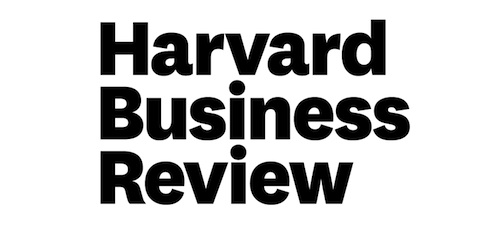In some ways, Harvard Business Review is the gold standard of business-school-associated journalism. One of their former editors went on to found Fast Company (another great business magazine) and is now running for Governor of New Mexico. HBR dutifully tracks — as most publications do — their most popular content. If we observe said content, can we learn anything about what people in business are searching for or interested in?
Let’s start with short-term, then we’ll go into long-term, and then we’ll talk about some caveats. In the short-term, the most popular content is here; across the past month, for example, the most popular article on all of HBR.org is “Why Good Managers Are So Rare.” (I wrote a thing similar to that as well.) Magazine articles across the past month? “15 Rules for Negotiating A Job Offer.” And the most commented on article in the past 30 days? “Midsize companies must prioritize ruthlessly.” That gives you a kind of broad overview of the short-term: people are most drawn to content around bad managers, job offers, and running a mid-size company. That all seems logical. HBR’s social analytics, at least those they allow you to sort by, aren’t great. I’d love to factor in re-tweets and shares — and definitely LinkedIn shares, as that seems extremely relevant here — but I don’t have that available to me at this moment.
Here’s an article from January 2012 claiming that these are the top 25 best-selling HBR articles of all-time: No. 1 is “The Parable of the Sadhu” (PDF), which is ostensibly about corporate ethics. I’m not sure that 25-list is completely accurate, but it does contain a good deal of overlap with HBR’s 10 Must Reads, which is kind of a go-to primer for their content. (They also break these series out into specific sub-categories.) Here’s a list of all 10 articles on the base edition, including “What Is Strategy?” by Michael Porter and “Leading Change: Why Transformation Efforts Fail” by John Kotter. I’m wrapping up business school right now, and I’ve been assigned both of those articles more than two times each.
If you look at the various lists, a lot of the topics revolve around ethics and strategy. This makes sense, because ethics is a hard area to navigate, especially as companies become more and more global; what’s ethical or necessary in one place isn’t always the same in other places. Ethics is also an issue very few people think about until they’re completely on the line about it — i.e. in a make-or-break situation that could require crisis PR. So it makes sense that ethically-driven articles would be popular here, and so too with strategy: that’s often an amorphous concept for people. What exactly is a strategy? The goal is probably to create profit and give that back to the shareholder, right? But what’s a strategy? Is it a series of transactions and deliverables we can track, or is it a schedule/game plan? Or is it how you interact with your people? It’s not always clear, so it makes sense that people are searching for that type of content.
The caveats: who actually reads HBR is a matter of some debate, in a way. Is it actually thought leaders and business leaders, or is it primarily business academics and business school students? This data set seems to indicate some big-wigs do read it, which would reflect that the “most popular content” is probably aligned with what business leaders view as their biggest challenges. That all being said, there’s some context around the idea that you achieve in business by doing, and that learning is more for an academic community, not a profit-seeking one (this is sometimes why you see a disconnect between professors and VPs of companies on certain topics). I’m not sure how many people read HBR, be it an idea or a case study, and then immediately try to impart the lessons on their own workplace; there’s likely still some kind of “Well, this article was interesting, but my gut tells me …” going on here.
So … can you learn a lot about the challenges facing businesses by looking at HBR popular content? Yes and no. Some business challenges — like getting, and then motivating, top people — will always be around, and leaders will always seek content on those things. (Same with bad managers, etc.) You can learn a little from the 30-day popularity outlooks around what certain leaders might be concerned with at a given time (midsize company growth!), but overall, all of it is contextual and can be taken with a few grains of salt.

Reblogged this on Uthmanx.